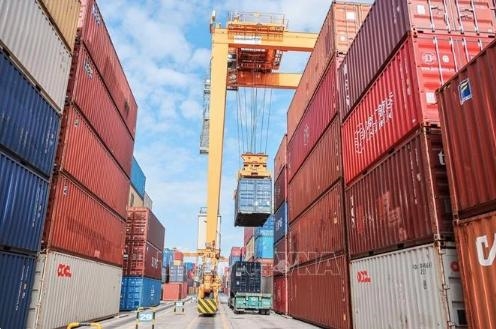April 12, 2025 | 22:49 (GMT+7)
Ministry calls for stricter control over imported materials amid tighter origin rules
In an effort to prevent origin fraud, the Ministry of Industry and Trade (MoIT) has issued a document to export industry associations, manufacturers and exporters, urging tighter control over imported materials used in the production of export goods.
Accordingly, Document No.2515/BCT-XNK highlights the fast-changing and unpredictable landscape of global trade, particularly in light of the U.S.'s ongoing tariff policies affecting many countries, including Vietnam.
    |
 |
|
The MoIT calls for stricter control over imported materials amid tighter origin rules. |
To help businesses adapt to this shifting environment while safeguarding Vietnam’s trade interests and maintaining export operations, the ministry has outlined a series of recommendations.
Export industry associations are advised to work closely with regulatory bodies to stay abreast of changes in international trade policies and market movements. This collaboration aims to provide timely guidance and warnings to member companies, enabling them to take proactive steps in production and export planning.
Additionally, the associations are responsible for a main coordinator to help businesses diversify and expand their sources of raw materials, thereby reducing reliance on any single market. Member companies should ensure the traceability and hygiene standards of imported inputs, aligning with the safety and origin requirements of importing countries to avoid accusations of origin fraud.
The MoIT also encouraged exporters to develop adaptive strategies to the new trade dynamics. This includes seeking out new customers and partners in under-tapped or high-potential markets. Careful consideration of raw material sources is also crucial, ensuring products meet the origin and traceability standards set by overseas buyers.
Despite global uncertainties, Vietnam’s trade performance has remained robust. According to the National Statistics Office under the Ministry of Finance, total import-export turnover in the first quarter of 2025 reached 202.52 billion USD, a 13.7% year-on-year increase. Of that, exports contributed 102.84 billion USD, up 10.6%, while imports stood at 99.68 billion USD, up 17.0% compared to the same period last year.
Source: VNA